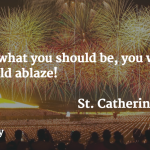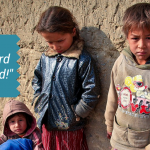 On January 19th, 2014 we will commemorate the World Day of Migrants and Refugees. In advance of this event, Pope Francis has released the full text of his message for the annual event.
On January 19th, 2014 we will commemorate the World Day of Migrants and Refugees. In advance of this event, Pope Francis has released the full text of his message for the annual event.
I think my ears and heart are particularly open to this message of encouragement but also of urgent action. As I type this, I am in Eugene, Oregon and have witnessed firsthand a community that seems to be grappling with issues of homelessness and poverty. Granted, not every homeless person is a refugee or a migrant. But as transitory populaces without strong roots and often lacking in support, they underscore in my heart a need for a more proactive personal response to those in need in my own community, regardless of where they were born.
This portion of Pope Francis remarks struck me:
Our hearts do desire something “more”. Beyond greater knowledge or possessions, they want to “be” more. Development cannot be reduced to economic growth alone, often attained without a thought for the poor and the vulnerable. A better world will come about only if attention is first paid to individuals; if human promotion is integral, taking account of every dimension of the person, including the spiritual; if no one is neglected, including the poor, the sick, prisoners, the needy and the stranger (cf. Mt 25:31-46); if we can prove capable of leaving behind a throwaway culture and embracing one of encounter and acceptance.
Migrants and refugees are not pawns on the chessboard of humanity. They are children, women and men who leave or who are forced to leave their homes for various reasons, who share a legitimate desire for knowing and having, but above all for being more. The sheer number of people migrating from one continent to another, or shifting places within their own countries and geographical areas, is striking. Contemporary movements of migration represent the largest movement of individuals, if not of peoples, in history. As the Church accompanies migrants and refugees on their journey, she seeks to understand the causes of migration, but she also works to overcome its negative effects, and to maximize its positive influence on the communities of origin, transit and destination.
While encouraging the development of a better world, we cannot remain silent about the scandal of poverty in its various forms. Violence, exploitation, discrimination, marginalization, restrictive approaches to fundamental freedoms, whether of individuals or of groups: these are some of the chief elements of poverty which need to be overcome. Often these are precisely the elements which mark migratory movements, thus linking migration to poverty. Fleeing from situations of extreme poverty or persecution in the hope of a better future, or simply to save their own lives, millions of persons choose to migrate. Despite their hopes and expectations, they often encounter mistrust, rejection and exclusion, to say nothing of tragedies and disasters which offend their human dignity.
I continue to pray about how to be a face of love and welcome to those in need around me.











